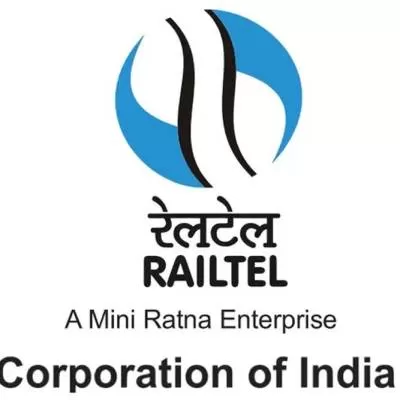Schedule a Call Back
Opinion: Unlocking the REIT Opportunity!
 Across the world, some of the largest REITs own property types such as telecommunication infrastructure, industrial, data centres, retail malls, healthcare facilities, commercial offices, residential projects and several other assets. In comparison, it was only 17 per cent as of August 2019 in India. Therefore, the REIT market opportunity is still significant and also still largely untapped in India. By SHOBHIT AGARWAL
Across the world, some of the largest REITs own property types such as telecommunication infrastructure, industrial, data centres, retail malls, healthcare facilities, commercial offices, residential projects and several other assets. In comparison, it was only 17 per cent as of August 2019 in India. Therefore, the REIT market opportunity is still significant and also still largely untapped in India. By SHOBHIT AGARWAL
April 1, 2019, was an important date in the history of modern India?s financial services sector as the country?s maiden real estate investment trust (REIT) was listed on the bourses. The euphoria on Dalal Street was evident with investors placing 181 million bids and the issue being oversubscribed by 2.6 times. On the day of listing, the scrip closed at Rs 314.10 per unit, up 4.7 per cent from its issue price of Rs 300, showing that investors whole-heartedly welcomed the advent of REITs in India.
Although REITs currently focus only on commercial spaces in India, globally they have existed for around 60 years.
Insert ?REIT Gfx-1? here
Across the world, some of the largest REITs own property types such as telecommunication infrastructure, industrial (distribution centres, warehouses, etc.), data centres, retail malls, healthcare facilities, commercial offices, residential projects and several other assets.
As of August 2019, the US REITs market capitalisation was 96 per cent of the real estate market, while in Singapore and Japan it was 55 per cent and 51 per cent, respectively.
In comparison, in India, it was only 17 per cent as of August 2019. Despite the markets being in a turmoil over the past several months by among other things the COVID-19 outbreak, the REIT market opportunity is still significant and also still largely untapped in India.
SomeProminent Global REITs
|
REIT |
Property Type |
Market Capitalisation* |
|
American Tower Corp |
Telecommunications Infrastructure |
USD 109.2 Bn |
|
Prologis |
Industrial |
USD 66.4 Bn |
|
Equinix |
Data Centres |
USD 60.7 Bn |
|
Equity Residential |
Residential Apartments |
USD 21.2 Bn |
|
Boston Properties |
Commercial Offices |
USD 13.5 Bn |
*As of June 26,2020 Source: ANAROCK Capital
The India Story
The stock market regulator, Securities and Exchange Board of India (SEBI) introduced draft rules, partnered with several stakeholders and enacted the REIT regulations in 2014. Between 2014 and 2016, the rules were revised several times to address concerns, primarily related to double taxation.
In 2014, the sponsors were given a tax deferral to transfer the shares of the special purpose vehicle (SPV) to business trusts in consideration for units. Taxation was deferred until the sale of units. In 2015, minimum alternate tax (MAT) deferral was also introduced.
In 2016, the dividend distribution tax (DDT) exemption was provided at the SPV level. The fact that this makes the REIT taxable in the hands of the shareholders has caused some concern, but SEBI, along with industry stakeholders, is working to sort this out as well. The regulator has been instrumental in the success of the REIT vehicle in India, crafting a robust process and efficient mechanism to ensure transparency and generate interest from institutional investors.
Presently, Embassy Office Parks REITs is the only publicly-traded REIT in India and as of June 26, 2020, its market capitalisation was around $3.45 billion (17 per cent of the listed real estate stocks? market capitalisation in India).
|
Embassy Office Parks REITs - A Snapshot | |
|
Portfolio Size |
33 million sq. ft |
|
Occupancy |
92.8% |
|
No of Properties |
7 |
|
Geographical Spread |
Bengaluru, Mumbai, NCR & Pune |
|
Average Lease Tenure |
5-9 years |
From its inception leading up to June 25, 2020, Embassy Office Parks REIT has yielded 14 per cent returns, which is higher than the returns generated by BSE Realty Index that yielded negative returns of -20% in the same period.
Insert ?REIT Gfx-2? here
India REITs Market: Under-explored, Opportunities Galore
India?s maiden REIT has paved the way for many others to follow suit. We are witnessing consolidation of portfolios and good quality office assets are exchanging hands. Several developers and owners of commercial office real estate are in various stages of preparing for the listing. Considering that the Indian office sector is quite organised and has the presence of corporate developers, it opened the way for the maiden REIT.
However, the COVID-19 outbreak has slowed down activity, with global investors carefully watching the emerging work from home trend that may shrink office space requirements. Developers worry about the attainable rental values for renewals and new leases, as there may be a demand slowdown in the short-term. Commitments to future spaces, if withdrawn, may adversely impact the commercial office sector.
Currently, the top seven cities of India have close to 550 million sq. ft Grade-A office supply, of which 310 - 320 million sq. ft is ?REIT-able?. Indian REITs are still at a nascent stage with immense potential even in other asset classes going forward.
Nearly 43 million sq. ft of Grade-A mall space of over 200,000 sq. ft, excluding stand-alone anchors, has been added across the top seven cities in the last decade. These malls, with an overall occupancy of more than 80 per cent, can potentially provide a major retail REIT opportunity. However, a lot will also depend on how the COVID-19 situation evolves. As of 2019, 110 million sq. ft Grade-A warehousing stock existed across India. If the residential rental housing market in India gets further organised, it is capable of emerging as a sizeable opportunity for residential REITs. Considering that residential constitutes around 80 per cent of the India real estate market, there is a huge opportunity to systematically develop rental housing and enable the formation of residential REITs.
In addition to the above traditional asset classes, India is a booming market for ?new-age? asset classes such as student housing, co-living and senior living which have inherent potential to be developed as REITs, albeit it appears to be several years away as of now.
REITs Help Unlock Real Estate Value
The successful listing of Embassy Office Parks REIT was a major step in the right direction. The realisation of a larger REIT market in India will hinge on the further benefits that markets offer to investors. With regards to capital gains tax concerns, India could consider taking cues from mature markets such as the UK that has exempted REITs from income and gains tax.
With another realty major K Raheja Corp. now gearing up to announce their REIT listing, India is better positioned than ever before and there is considerable incentive for making the proposition even more attractive. With the right kinds of evolutionary steps, India can join the elite club of global REITs. Establishing and nurturing such investment vehicles helps unlock the massive value of real estate assets and enable retail participation in the development of the nation.
Shobhit Agarwal is Managing Director & CEO ANAROCK Capital


Subscribe Now
Subscribe to our Newsletter & Stay updated
RECENT POSTS
Popular Tags
Folliow us











